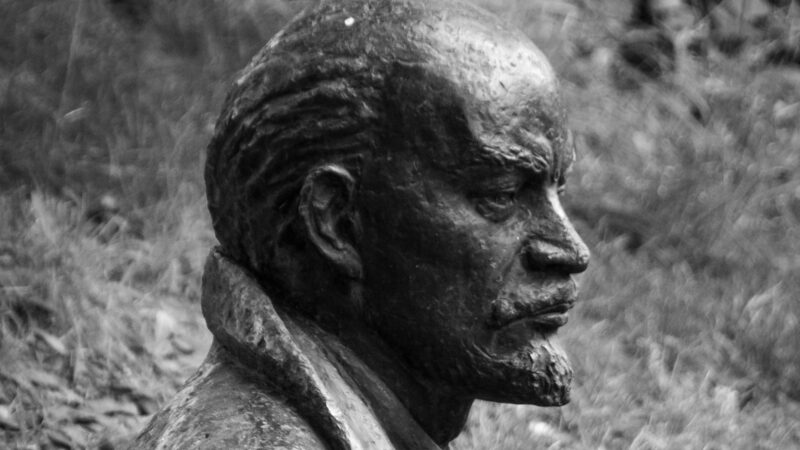Bring Back Food Rationing!
Having never experienced food rationing myself I cannot say what it is like, but I am assuming the experience is not as bad as images suggest. My reasoning is straightforward and can be put in the form of an argument as follows: (1) The National Health Service (NHS) is good; (2) Food is more important than health; therefore, (3) A National Food Service (NFS) would be good. Is there anything wrong with this argument?
Let’s look briefly at the truth or falsity of the premises, before elaborating. A supporter of an NFS, along with many millions of others, would affirm with confidence that the NHS is a ‘good thing’. That is, it is a desirable if not indispensable institution, at the beating heart of our national life, a support and a lifeline for all of us, relatively free at the point of use, providing the full panoply of basic medical services, from care for minor ailments to treatment for serious illnesses and conditions such as cancer, heart disease, broken limbs, disfigurement, deadly infections, and so on. Yes, it is currently in the worst shape it has been in for decades, to the point that in the current election campaign the major parties do not even pretend to mouth slogans such as ‘Twenty-for hours to save the NHS’, so far gone is the patient.
That does not mean the NHS is undesirable, though, does it? Anyway, just suppose it is a good thing for the sake of argument and let’s revisit the premise later. Premise (2) says that food is more important than health, and the truth or falsity of this depends on what we mean by ‘important’. Think of it this way. Although both food and health are quite basic human goods, there is an asymmetry. Without food – by which I mean adequate nutrition, not simply fasting for a bit or going on a diet – you are guaranteed to be unhealthy. But if you are unhealthy, it is not guaranteed you will lack adequate nutrition. Some illnesses make it hard to keep food down. Some illnesses deprive a person of their appetite. But these are exceptions. You can be seriously unhealthy, headed for the grave, and yet still not be suffering from malnutrition. If you are malnourished, however, you will be unhealthy there and then, with no further steps required, no exceptions to be made.
Ask yourself this admittedly remotely hypothetical question: faced with the choice between inadequate food and inadequate health (short of death!), which would you choose? I’d go for inadequate health, thinking that with inadequate food I’ll be unhealthy anyway, so why not just have ill health but at least plenty of food, hoping that I can maintain my strength and give myself a fighting chance against my illness? Again, as a general rule if you have zero food you are dead in a few months. You’d have to have a pretty rare condition – pancreatic cancer, say – to be dead in a few months. If you add not having water to not having food – and I do want to add that since I am classing food and water together when I hypothesise about a National Food Service – you are dead in a few days. Very few illnesses or combinations of conditions kill you in a few days – maybe bacterial meningitis or necrotizing fasciitis.
So yes, of course health is important, but food is just that bit more important. That said, by ‘important’ in premise (2) I am packing a little more into it than the asymmetry just outlined. I also mean that if there is such an asymmetry, then however society is structured so as to make health care readily available should be similar in key respects to how society should be structured so as to make food readily available. This is how the conceptual connection between ‘good’ in (1) and ‘important’ in (2) should be interpreted. (I could split the argument into sub-arguments to make this crystal clear, but it’s not necessary).
Now, does our conclusion (3) – ‘A National Food Service (NFS) would be good’ – follow from the premises? If so we have a valid argument, and if the premises are true then we have our ultimate goal, a sound argument – to lapse into philosophy-speak. Well, I’ve gestured at the truth of (1) but also said we should just assume it for the fun of the argument. A full defence of (1) would come from the endless literature doing just that – defending the goodness of the NHS. I’ve argued at greater length for the truth of (2) and its connection to (1). Suppose I’ve done the job. Then how could the conclusion not follow? It must, of logical necessity. There is no escape. We need a National Food Service.
Er, do we? The title of this article refers to ‘rationing’. Actually, food rationing is really not something you’d want to experience. Nobody in their right mind wants food rationing, except the crooks who make money off it and are not subject to the rationing themselves. I think I’d rather emigrate than have food rationing – at least as a way of life. So what I really think – and I’m sure you agree – is that food rationing is not something we’d want brought back. And so the prospect of a National Food Service should fill me – and you – with utter dread. If that is the case, then we must do what we philosophers call a modus tollens: I give you an argument pointing inexorably to a certain conclusion. But that conclusion is on its face absurd. You and I won’t accept it. So we are forced by logic to deny at least one of premises (1) and (2). Having already made a pretty good case for (2), we have to deny (1) after all, contrary to the initial ‘for the sake of argument’ assumption. The NHS is not good – not in concept any more than in current execution.
Wait a minute, you might object: I’m comparing apples and oranges. There is no rationing in the NHS! But there is, I insist. True, we don’t all walk around with health care ration books with quotas of medicines or treatments printed on each ticket. But health care is rationed nonetheless, as any fule kno. You get a precious ten minutes with your GP, then you are politely expected to leave (unless things are serious as judged by that GP alone). You cannot get any treatment you want, no matter how effective or promising; it all depends on cost and the voluminous guidance of the National Institute for Clinical Excellence (NICE). Ultimately, who gets what is for the government of the day, acting on the advice of – sorry, I can’t resist – Twenty-First Century Science.™ The details of NHS rationing are there for all to see. This leads to very bad consequences for patients in a multitude of cases, with the example of breast cancer drug Kadcyla being instructive.
A critic of my argument might insist that food and health are dissimilar in important ways that undermine premise (2), the claim that food is more important than health. Recall that my argument is not just that food is prior to health in terms of human well-being, but that because of this its allocation in whatever way society allows should be the same as the way health care is allocated in that society. All things being equal, perhaps that is true. But all things are not equal, says the critic. There is a whole side to food provision that has no health care parallel. There are restaurants, gourmet dining, eating for pleasure, eating as a cultural pastime. Whereas health care is about meeting needs, there is more to food provision than simply meeting needs.
It is not clear to me that there is a disanalogy. Health care also has its niche, exotic, cultural, aspirational side. Think of purely aesthetic surgery – nose jobs, teeth whitening, skin lightening, Botox, hair removal, hair transplants, body modification, and so on. These are all far more about satisfying desires than meeting real needs. They are generally not necessary for health. The critic retorts: ‘then they are not about health care, so why are you bringing them into the discussion?’ My reply: ‘then neither is fine dining or wine tasting part of food provision, so why are you bringing them into the discussion?’ In other words, cheek filler and fine dining stand or fall together. Either both are on the table or neither are. I think it’s more plausible to say they are both on the table as quite remote parts of health care and food provision, respectively. Now, cosmetic surgery is not routinely available on the NHS, except for mental health reasons or if the cosmetic aspect is accompanied by a real functional need (e.g. to breathe clearly). This is well and good. Similarly, in my National Food Service regime, oysters and crab-flavoured ice cream would also not routinely be available (except perhaps if they were essential to nutrition!). These would have to be purchased on the private market.
The critic might try this gambit: health care, the kind of care that doesn’t just maintain health but that keeps you alive, can be astronomically expensive. People can’t generally afford it. Adequate nutrition can be had very cheaply. So people need help from the state with the former but can pay for the latter themselves. My reply is that if this point is a good one, it only favours restricting the NHS to the really expensive treatments, not retaining the kind of all-encompassing, womb-to-tomb NHS we have now. So the critic’s point undercuts their own idea that an NFS is not desirable but the NHS is. Moreover, some staple foods, which millions require for nutrition, are particularly expensive to produce, e.g. rice; these rely heavily on government subsidies, loans, and other price support mechanisms. So why not go the whole hog with food, so to speak, and bundle it into an NFS? Anyhow, the overall cheapness of food argues in favour of an NFS because it is really, truly, hard to believe that an NFS would cost more than the NHS – which is pushing £200 billion in annual cost, that is to say, about £3000 annually for every human being in England. I am having to stretch my credulity beyond breaking point to suppose that universal food rationing would cost anywhere near that much. But I have no method of estimating it. (The last I looked, by the way, £3000 would buy every human being in England a helluvalot of health insurance. Just saying.)
OK, how about the ‘black market’ objection? This says that just as we saw a lot of illegality during wartime food rationing, we would see the same the minute an NFS came into existence. And we don’t want that. In reply, this presupposes we do not see illegality as a result of having the NHS. I’m not talking about dodgy tattoo and piercing parlours or lunchtime liposuctions. I’m referring to ‘medical tourism’, where thousands upon thousands of UK citizens go abroad for medical treatment (234,000 in 2021, with 34,000 foreigners coming to the UK for treatments, stats here; gets the noggin joggin’ doesn’t it?). That in itself is legal, of course, but it is surely the case – data are hard to come by – that at least hundreds, if not thousands, of people are injured by negligent doctors, in dodgy or uncertified clinics, or by illegal procedures abroad. I am not thinking of cosmetic surgery (which is the number one reason for medical tourism) since that is not available on the NHS anyway, but rather of things like orthopaedic surgery and dental procedures (it being notoriously hard to get on the books of an NHS dentist).
It is tough to see a significant disanalogy between health care and food provision when it comes to the idea of a nationalised service – socialism, effectively. If there is none, then either we should go with food rationing or we should dismantle and privatise the NHS. As I said, I’m not a fan of food rationing and I doubt you are. I like my private supermarkets, the abundance of choice, the full range of pricing, the efficient delivery, and the reasonably pleasant shopping experience. (Things are going downhill, to be sure; thanks a bunch, America.) But that’s only the supermarkets. I live near an award-winning cheese shop, an award-winning butcher, an overpriced organic shop, and can get pretty much any food online that I can’t find locally. All in all, I can’t complain. Do I want all this to be turned into a bunch of Stalinist showrooms with tasteful lighting illuminating a few mouldy potatoes? All right already, I’m exaggerating. But you can bet that an NFS would be a sodding awful experience without end (unlike post-World War 2 food rationing, which ended in 1954).
And a privatised health service? I admit, my own experience with the NHS has been pretty positive. Our local surgery is clean, neat and friendly, the local hospital likewise, so again I can’t complain. But that’s my area. Stories abound of shoddy service: paint peeling off the walls, DNRs on anyone over 70 (at least during COVID), old people lying on trolleys in corridors for hours and days on end, people sleeping on the floor, half a day to get seen by accident and emergency, botched maternity care, murderous nurses, sepsis here and sepsis there, often woeful food, radical discontinuity of care, hospitals rated inadequate, a culture of cover-up, bullying, endless negligence payouts, bloated bureaucrats on golden pensions, and so on and on. The word on the street these days about the NHS is not exactly positive.
There is no room to rehash the endless debate over privatised health care. That said, I am not advocating for a fully privatised system anyway. Not even our private food system is without government supplementation, for example free school meals and financial assistance to food charities, not to mention government subsidies for agriculture. In a private medical system, there would be similar government assistance, safety nets, and the like. In addition, just as private food is heavily regulated so as to reduce the risk of contamination, food poisoning, and waste, so a private medical system would also be heavily regulated to ensure basic standards from top to bottom.
The worry that is perhaps most often raised is that whereas food products are commodities and hence subject to commodity pricing, many life-saving medicines and treatments are the result of decades of high-cost research and development, require intellectual property protection, and need to have their costs recouped through high pricing. The hope that I and many others have is that as long as technology progresses, prices will trend downwards and affordability will increase. This is particularly so with the mass production of generic medicines. A hundred years ago, hardly anyone ate steak. And hardly anyone had access to antibiotics. Still, there is a long way to go in light of the Big Pharma quasi-cartel, corrupt regulators and legislators (the old ‘revolving door’), and the artificial stimulation of demand due in large part to a woeful lack of government or private interest in preventive health care – the best health care of all.
No, I don’t want to stand in a queue outside a state-run food dispensary. And I want more than ten minutes with my GP. The logic of not bothering about the latter leads to not being fussed about the former, at least if my reasoning is correct. I think we should reject rationing altogether, outside of war and national calamity. If I want a National Food Service, I’ll head over to North Korea. Thanks but no thanks; I’m off to Tesco for a sirloin.
David S. Oderberg is Professor of Philosophy at the University of Reading; d.s.oderberg@reading.ac.uk; www.davidsoderberg.co.uk; davidsoderberg.substack.com. All opinions expressed are personal and not associated in any way with my employer.










The Path of Reconstruction
As every British conservative writer, pundit, and academic will tell you, Prime Minister Benjamin Disraeli once said:
How right he was! Having ceased to be a national party in both respects, dispensing with any meaningful concept of the nation and placing all its chips on a concentrated slither of the Grey Vote – a demographic which it’s managed to alienate after a completely avoidable PR disaster – the party is on track to be reduced to nothing come this year’s general election.
Based on recent polling, the Tories are competing for a distant second with the Liberal Democrats, leading many to suggest 2024 is going to be Britain’s equivalent of Canada’s 1993 federal election, in which a centre-left lawyer secures a majority after the unpopular centre-right government, headed by an unlikeable first-of-their-kind Prime Minister, was decimated by a vote-splitting right-wing populist upstart called Reform.
Given this, it is worth considering the possibility of a Canada ’93-style erosion of the Conservative Party over the next five years and what this will mean for the British right, assuming it’s going to be represented by Reform UK or a different party arising from a merger between the two. After all, by his own admission, Farage isn’t trying to win the general election, stating it won’t determine which party enters government (rest assured, it will be Labour) but will determine which party leads the opposition.
The collapse of the Progressive Conservative Party – Canada’s main centre-right party – coincided with the rise of the Reform Party of Canada (RPC); a right-wing populist party founded in the 1980s and led by Preston Manning. The RPC originated as a pressure movement for advancing the interests of Western Canada, whose inhabitants felt increasingly alienated by the central government, especially as constitutional issues increased in salience. The RPC was particularly suspicious of attempts to grant “distinct society” status to Quebec, believing Canada was a federation of similar and equal provinces united by a set of rights and obligations, rather than an essentially multicultural and bilingual state.
As the RPC sought to become a national party, it was required to expand its appeal and therefore its political platform. The party dispensed with its Western-centric agenda and outright rejected calls within its rank-and-file for Western Canadian independence. In its place, the RPC formulated a platform dedicated to shrinking the size of the central government, lowering taxes, making considerable cuts to government spending, pursuing free trade agreements, supporting Christian social values, promoting direct democracy, and advancing political reform.
After its electoral breakthrough in 1993, the RPC continued to broaden its appeal, softening its positions to attract more moderate-minded voters in Canada’s Eastern provinces. Whilst the 1993 manifesto provided an extensive 56 reasons to vote for the party – over half of which dealt with the party’s core concerns, treating areas outside their remit with scarce detail – the party’s 1997 manifesto condensed its list of policies, softened its position on tax-and-spend, made national unity a top priority, and generally provided more thorough proposals. The party also openly disassociated with views which invited accusations of bigotry, intolerance, extremism but retained a focus on family-oriented social conservatism.
In the 1997 federal election, the RPC would increase its vote share and total number of seats, becoming the largest party in opposition and solidifying itself as the main conservative party in Canada. The party held onto its Western support base and managed to strengthen its influence in the Prairies, but still struggled to find support among moderate Atlantic Canadians, many of whom continued to support the PCP, despite its greatly diminished political influence. For the most part, the RPC was still viewed (and still functioned in many ways) as a regional party, seen by many as the Western equivalent of the Bloc Québécois – a party dedicated to the interests of Quebec and another major winner in the 1993 federal election.
To complicate matters further, the Liberal government of Jean Chrétien pursued greater financial discipline in order to reduce the national deficit. This occurred during a period of “constitutional fatigue” which tail-ended a turbulent period of controversial proposals for reform. As fiscal conservatism and political reform were the RPC’s core concerns, the party often struggled to oppose government policy despite being the largest party in opposition, simultaneously trying to integrate its newfound responsibilities (and privileges) with its populist background.
Concluding it needed to broaden its appeal even more, the RPC merged with several provincial wings of the PCP into a new right-wing party: The Canadian Alliance.
Similar to the RPC, the party continued to adapt its image, refine its positions, and broaden its platform. However, unlike the RPC’s 1997 manifesto, which largely homed-in on the party’s approach to its core issues, the CA’s 2000 manifesto paid greater attention to issues beyond the RPC’s traditional remit, such as international affairs, environmental conservation, and technological change, all whilst carrying over RPC policy on tax-and-spend, decentralization, and family values.
Alas, despite these efforts, the Canadian Alliance (CA) was short-lived, existing for less than half-a-decade, and was widely viewed as the RPC under a different name. The party would place second in the 2000 federal election, increasing its share of the vote and its number of seats as the RPC had done in 1997, but not before playing host to a major change in the Canadian political landscape: the end of Preston Manning’s leadership. For most members, a new party required new management, so the bookish Manning was ousted in favour of the clean-cut (but also gaffe-prone) Stockwell Day, whose outspoken evangelical views often contrasted his own party’s efforts at moderation.
The Canadian right would remain out of power until 2006, in which the newly founded Conservative Party of Canada (CPC), led by Stephen Harper, a former policy advisor to Preston Manning, defeated the incumbent Liberal Party and formed a minority government. Founded in 2003, the CPC was created from a full and official merger of the CA and the PCP. Combining policies and aspects of their intellectual traditions, the merger reinvigorated the centrality of fiscal conservatism in the Canadian centre-right, and united Canada’s once-divided right-leaning voters under one national banner.
Although courting the Christian right, Harper displaced the last remnants of the RPC’s populistic social conservatism to the party’s periphery, entrenching economic liberalism as the backbone of the CPC’s electoral coalition whilst formulating stances on a variety of issues, from immigration to arts and culture, from constitutional reform to public transit, from foreign policy to affordable housing, from international trade to social justice.
As it took roughly five years and two election cycles for the RPC to destroy and absorb the PCP, it’s possible that Farage is banking on achieving something similar. However, what this implies is that Farage intends to oversee the destruction of the Conservative Party, but not the reconstruction of Reform UK – at least, not in a frontline capacity. Once the Conservative Party has been sufficiently diminished, a relatively younger and less controversial candidate will take the reins and transform it into a political force which can continue to fight national elections and possibly form a government; someone to move the party away from ‘negativistic’ anti-establishment populism – primarily acting as a vessel for discontent at the insufficient (if not outright treacherous) nature of recent Conservative Party policy – and fully towards ‘positivistic’ solution-oriented policymaking and coalition-building.
Assuming this is Reform UK’s plan, seeking to replace the Tories after beating them into the ground over the course of a five-year period, Reformers must internalise a major precondition for success; besides, of course, overcoming the perennial task of finding someone who can actually replace Farage when he stands aside.
In admittedly generic terms, just as the RPC/CA had to find support outside of Albertan farmers, Reform UK (or the hypothetical post-merger party) will need to find support outside of its core base of Leave-voting pensioners in East Anglia.
At some point, Britain’s populist right must become accustomed to acknowledging and grappling with issues it instinctively prefers to shy away from and keep light on the details; issues which remain important to much of the electorate and remain relevant to governing: the environment, technological change, the minutiae of economic policy, tangible health and welfare reform, foreign policy and international trade, food and energy security, the prospects of young people, broader concerns regarding economic inequality and social injustice, so on and so forth.
If this sounds similar to the criticism directed at the liberal-left’s aversion to immigration, demographics, traditional culture, and crime in a way that befits public concern and the national interest, that’s because it is.
There are many issues one could use to convey this point, but the environment is undoubtedly the best example. According to regularly updated polling from YouGov, the environment is a priority for roughly 20% of the electorate; only the economy, immigration, and healthcare are classed as more important by the general public, and housing, crime, and national security are considered just as important. Young voters emphasise the environment more than older voters. From the get-go, it’s clear that an environmental policy will be an unavoidable component of any national party and certainly one with a future.
Compare this to Reform UK’s recently released ‘Contract with the People’, which does not possess a subsection dedicated to the environment. Rather, it has a section dedicated to Net Zero and its abolition. On the whole, the subject is dealt with in a negativist manner, merely undoing existing measures, replacing them with nothing, all without reframing the issue at hand. At best, one can find some commitments to tree-planting and cutting down on single-use plastics. As most should have surmised by now, parties can’t afford to be meagre with environmental propositions – go big or go home!
Of course, none of this is surprising. After all, according to Richard Tice, Chairman of Reform UK, concerns about climate change are misguided because the climate has always been changing; it’s a process which can’t be stopped, but it’s OK because carbon dioxide is “plant food” anyway. It’s not happening, and that’s why it’s a good thing.
Indeed, leftists look stupid when they insinuate a similarity between a depoliticised process of post-war mass immigration to the Norman Conquest, so what does the British right have to gain by comparing manmade carbon emissions to the K-Pg extinction event? If not out of strong environmentalist convictions, any force eager to replace the Tories as the primary right-leaning party in Britain must be realise such issues cannot be left untouched – even those issues one might say the Tories have embraced too much or in ways which aren’t in the national interest.
As we look to other right-wing populist upstarts across the Western world, it’s clear that such a realisation is not optional, but a precondition for transforming fringe organisations into national parties.
Consider this in relation to Marine Le Pen’s National Rally, perhaps the most successful party to make such a transition, evidenced by the party’s unprecedented success in the recent EU elections and their gradual but near-total displacement of the Republicans, France’s official centre-right party.
Similar to the RPC, the National Rally’s evolution has involved more than a name change and moderating its less-than-palatable elements. Instead, it has retained its central issues whilst diversifying its platform.
Although Le Pen has undoubtedly been a key driving force behind readjustments to the party’s priorities and image, distancing itself from its origins and so on, much of this process stems from the influence of Jordan Bardella: the party’s young president and the current favourite to become the next Prime Minister of France.
Contrary to suggestions made by Britain’s vibes-oriented commentariat, who attribute Bardella’s relative popularity with young voters and the broader French electorate to the mere act of using TikTok, Bardella has gone to considerable effort in his capacity as president to identify and address issues which are important to voters, not just issues which are important to the National Rally, and incorporate them into the party’s platform; issues other than immigration which similarly influence much of the public, such as the environment, which Bardella views it as one of the three main challenges facing the younger generation (the others being demographic and technological change). Indeed, a far-throw from the perpetual handwringing over young, know-nothing eco-zealots which homogenises right-leaning boiler room commentary in Britain.
Going beyond criticism of existing policies, which is often connected to the party’s support for French farmers and poorer voters in provincial areas, Bardella encourages the party to take up the environmentalist mantle and formulate solutions in step with its own intellectual history:
Along with this readjusted approach, Bardella has also made very specific appointments in his capacity as president, such as promoting ideas put forward by Hervé Juvin, MEP and former ecological advisor, and appointing Pierre-Romain Thionnet as director of the National Rally’s youth movement, briefly described in Le Monde as:
The National Rally typically views climate change through its longstanding endeavour of protectionism, noting free trade results in offshoring the sources of pollution, rather than getting rid of them altogether. As such, not only does France relinquish its industrial capabilities, it pushes pollution beyond its political control; offshoring depoliticises pollution, a process which is worsened by the logistical chains required to ship products made on the other side of the world, nevermind in other localities of the same country or continent.
To his credit, Farage has hinted on some occasions at something similar in the form of reshoring emissions, and whilst this is a step in the right direction, it remains an underdeveloped afterthought in Britain’s right-wing, which (in the words of Dominic Cummings) remains mired in the “SW1 pro/anti Net Zero spectrum.”
At the same time, the National Rally engages in more universally recognised forms of environmentalism which aren’t predicated on immigration restriction, euroscepticism, or protectionism, especially at the level of local government; from tree-planting campaigns to ‘eco-grazing’ to installing LED lightbulbs.
As a result, the National Rally maintains a monopoly on its bread-and-butter issues and claims ownership of issues which are not traditionally associated with the French right. Consequently, the French centre and left struggle to maintain control of the narrative surrounding their own key issues and remain stubbornly averse to the concerns of voters living outside the Parisian bubble.
Returning to the British political landscape, Reform UK can most likely afford to hammer its wedge issue of immigration into the Tories’ base at this election, possibly felling the party’s influence once and for all. However, as 2024 fades into the rear-view mirror, it will need to grow something in its place. The gains which once felt exhilarating will begin to flatline and seem anaemic if the party doesn’t aggressively pursue diversification (not the tokenistic kind, mind you). As the reality of living in a Labour-dominated one-party state sets in, many will begin to resent Reform UK unless it makes a concerted effort to adapt; the initial collapse of the right’s remit into the concentrated set issues it sought to politicise must be expanded as the issues which gave birth to its populist phase are moved from the periphery to the centre, and from thereon out, integrated alongside others to ensure their long-term electoral viability.
If it succeeds, it or it’s successor may very well replace the Tories as the main party of the centre-right. If it does not, the election and its aftermath is unlikely to follow the course of Canada 1993 or anything resembling it; the Tory Party may very well make a resurgence comparable to Labour’s post-2019 comeback. Nobody can afford to botch a murder, least of all in politics. Reform UK can’t stop at knocking the Tories down and it can’t be content with knocking the Tories out; it needs to smother the party to death with its own handkerchief and raid its carcass, pocketing both its right-wing and centre-right voters, even those who don’t have immigration as their number one priority and then-some.
At the same time, it needs to stay true to the promise of a nationalist approach to immigration, law-making, culture, and identity; at least, if it wants to avoid the same fate as the Conservative Party.
As various groups eye-up the collapse of the Conservative Party, looking for a chance to muscle-in and establish themselves as the dominant tendency of the right, it’s imperative that nation-first conservatism comes out on top. This will be particularly important as (unlike Manning, who wrote an entire book explaining his ideology) the specifics of Farage’s politics remain more ambigious than many would suspect; it’s entirely reasonable to suspect factions will claim him as their forebearer and themselves as his pure and true successors.
In my view, the right-wing cannot encumber itself with regurgitations of its past, whether it’s a form of neo-Thatcherism, which subordinates and uses socionational issues to reinforce a revealed priority for technical refinement and economic liberalisation, a misguided rehash of Cameronite centrism, which scarcely thinks about such matters in a conservative manner at all, or citizenist post-liberal projects, the artificial soldarities of which are unravelling in real-time. The right has already squandered one revolution, best not to squander another.
Of course, all of this is easier said than done, but it’s OK… Nothing Happens!
Photo Credit.